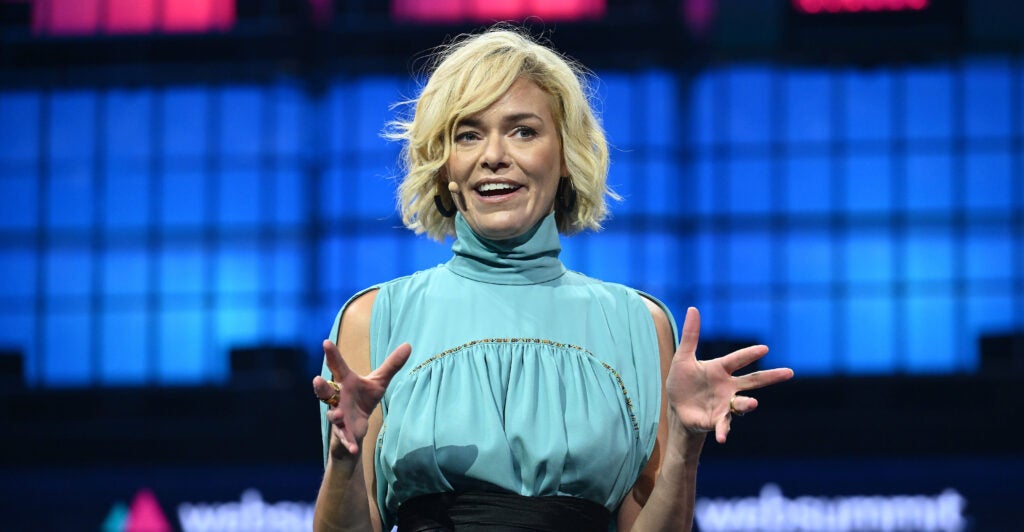It’s been a week since a liberal, 25-year veteran editor for National Public Radio published a damning online essay about the network’s biased, left-wing coverage, and there appears to have been no self-reflection by NPR’s powers that be.
Uri Berliner, who authored the essay, was chastised by NPR employees, suspended, and finally submitted his resignation Wednesday.
I can’t say I’m surprised.
With apologies to Berliner, who said that he’d rather see the taxpayer-subsidized network reform itself and get back to serving the broader public, rather than be defunded, he hasn’t quite come to grips with the depth of the problem.
The West’s compromised and radical institutions won’t reform willingly. They are part of a tightly knit, self-reinforcing system that uniformly rewards left-wing ideology and punishes even mild dissent.
If you want a look at where NPR is headed, just take a look at the social media posts of the network’s new CEO, Katherine Maher, who took over at the helm in January.
Old media posts and media appearances paint an almost ludicrously predictable picture of what NPR has become. The portrait they create is of a woman who seems more like an AI bot crafted by Google employees, rather than a real person.
She has backed every left-wing cause, cheered every Democratic presidential candidate with pom-poms, and riffed on the news with every kind of woke inanity you can think of.
Follow journalist Christopher Rufo on X for the latest: https://twitter.com/realchrisrufo.
Here are some of the more noteworthy reveals.
This is what she said about “truth” at a 2022 TED Talk, when she was the CEO of Wikimedia.
“Our reverence for the truth might be a distraction that is getting in the way of finding common ground and getting things done,” she said. “That is not to say that the truth doesn’t exist or to say that the truth isn’t important. Clearly, the search for the truth has led us to do great things … [but] one reason we have such glorious chronicles to the human experience and all forms of culture is because we acknowledge there are many different truths.”
Maher is all aboard the relativistic “my truth” train. She said she cracked down on the “free and open” ethos at Wikipedia because it was too often based on a “white male, Westernized construct” that led to “exclusion of communities and languages.”
It’s no surprise then that she’s not a huge fan of the problematic First Amendment, which she saw as the “No. 1 challenge” to combating what she called “disinformation and misinformation.”
She said she coordinated with the government to suppress content related to COVID-19 and the 2020 election.
As a quick reminder to our nation’s cultural elites like Maher: The First Amendment was designed to protect free speech, not because all speech is good, but because it was the best way to protect the truth.
Why does the head of a major media organization seem to have a problem with a constitutional amendment protecting the free press?
The problem at NPR isn’t just the woman in charge.
If anything, it seems like the most empowered employees want to do more to smash dissent and control the narrative. Are these employees in the majority? Who knows, but given how quickly Berliner was purged, it doesn’t take a lot to surmise that people like him aren’t going to be listened to behind closed doors.
So, what can be done to fix NPR? I’d suggest that asking for the network to fire Maher might be satisfying, but won’t ultimately solve the underlying problem.
If NPR were to fire her, she would likely just be replaced by another AI chatbot with similar, but perhaps slightly stealthier opinions.
Many on the Left believe—correctly—that their position within America’s most elite institutions is unassailable. Speaking the generic, DEI-laden language of the institutions is how one makes it to the top in the institutional rat race.
This is why the nation’s most elite private high schools are often even more absurdly left-wing than public schools. They know that the path to success doesn’t just come from grades, or accomplishments, or genuine merit. Instead, it comes from a combination of immutable and select mutable personal characteristics and from relentlessly being on the right side of the “narrative” at all times.
That’s how revolutionary regimes often operate, whether it be France in the late 18th century or the Soviet Union in the early 20th century.
Maher played that game flawlessly, which is why today she is NPR’s CEO.
“The new CEO of NPR is part of a rising cohort of affluent, left-wing, female managers who dominate HR and DEI,” Rufo wrote for City Journal. “… They value safety over liberty, censorship over debate, and relativism over truth.”
In some rare cases, somebody different rises to the top and is willing to defy institutional left-wing gatekeepers. That’s the Elon Musk model and why his takeover of Twitter, now X, was such a big deal.
That’s unlikely to happen with NPR, as it’s more directly connected to higher education and the federal government.
The only way forward for positive “change” at NPR is to not only pull the plug on the network’s direct funding, but also to cut off the flow of grant money that has floated many of its most ridiculous programs.
Out of the hundreds of millions of dollars Congress appropriates to the Corporation for Public Broadcasting, a significant amount is appropriated to local NPR affiliates through grants.
Maybe if NPR is totally defunded and forced to operate on its own, the network will have to finally reckon with its narrow, shrunken audience.
Let’s stop using taxpayers’ money on media organizations with leaders that treat the First Amendment as if it’s problematic. Is that too much to ask?
